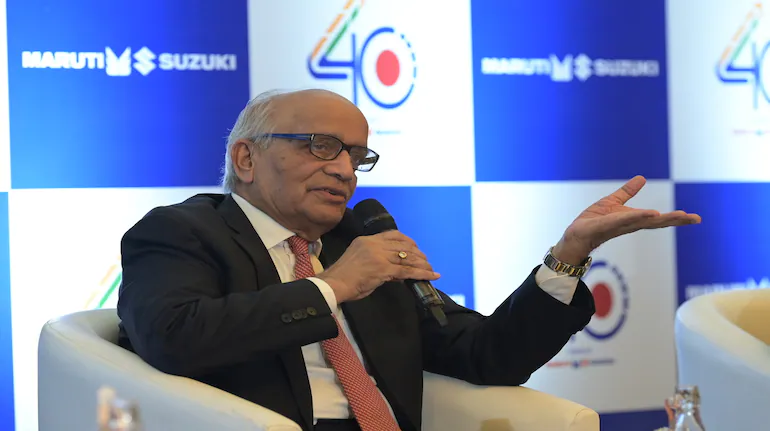Await Policy for Comprehensive Clean Technology Adoption, Says RC Bhargava

In an era where environmental sustainability is becoming increasingly critical, the adoption of clean technology stands as a pivotal solution. RC Bhargava, Chairman of Maruti Suzuki India, has emphasized the necessity for a comprehensive policy framework to facilitate the widespread adoption of clean technology in India. His insights come at a time when the automotive industry is undergoing a significant transformation, driven by the global push towards greener and more sustainable practices.
The Urgency of Clean Technology Adoption
RC Bhargava’s call for a policy framework underscores the urgency of integrating clean technologies across various sectors. As the head of India’s largest car manufacturer, Bhargava’s stance reflects the industry’s acknowledgment of its environmental responsibilities and the need for a strategic approach to sustainability. Clean technology encompasses a broad range of innovations designed to reduce environmental impact, including electric vehicles (EVs), hybrid technology, renewable energy sources, and energy-efficient manufacturing processes.
Challenges in the Current Landscape
Despite the clear benefits of clean technology, its adoption in India faces several challenges. High initial costs, lack of infrastructure, and insufficient incentives are significant barriers. Bhargava highlights that without a comprehensive policy, these hurdles could impede progress and delay the country’s transition to a greener future.
For instance, the adoption of electric vehicles, a key component of clean technology in the automotive sector, requires substantial investment in charging infrastructure and supportive government policies. While there have been strides in this direction, such as the Faster Adoption and Manufacturing of Hybrid and Electric Vehicles (FAME) scheme, Bhargava insists that a more cohesive and long-term policy is essential to drive substantial change.
The Need for a Holistic Policy Framework
A comprehensive policy framework would address these challenges by providing clear guidelines, financial incentives, and infrastructural support for clean technology adoption. Bhargava suggests that such a policy should include:
- Incentives for Research and Development: Encouraging innovation in clean technologies through tax breaks, grants, and subsidies for R&D activities.
- Subsidies and Financial Support: Offering subsidies for consumers purchasing clean technology products, such as EVs, and providing financial support to manufacturers to offset the high initial costs.
- Infrastructure Development: Investing in the necessary infrastructure, such as charging stations for electric vehicles, to support the widespread use of clean technology.
- Regulatory Standards: Establishing clear regulatory standards and timelines for the adoption of clean technologies to ensure consistent progress across industries.
- Public Awareness Campaigns: Promoting awareness about the benefits of clean technology among consumers to drive demand and acceptance.
Impact on the Automotive Industry
For the automotive industry, in particular, such a policy could be transformative. Bhargava envisions a future where clean technology is seamlessly integrated into the production and operation of vehicles, significantly reducing the industry’s carbon footprint. This includes not only the adoption of electric and hybrid vehicles but also the incorporation of sustainable practices in manufacturing and supply chain operations.
Maruti Suzuki, under Bhargava’s leadership, has already taken steps towards sustainability with initiatives such as the development of CNG vehicles and the exploration of hybrid technology. However, Bhargava believes that with a robust policy in place, the industry could accelerate its efforts and achieve greater impact.
Conclusion
RC Bhargava’s call for a comprehensive policy framework for clean technology adoption is a crucial step towards a sustainable future for India. As the country grapples with environmental challenges and the need for sustainable development, such a policy could provide the necessary impetus for industries to embrace clean technologies fully. By addressing current challenges and providing a clear roadmap for the future, India can position itself as a leader in sustainable innovation and significantly reduce its environmental footprint.



Leave a Comment